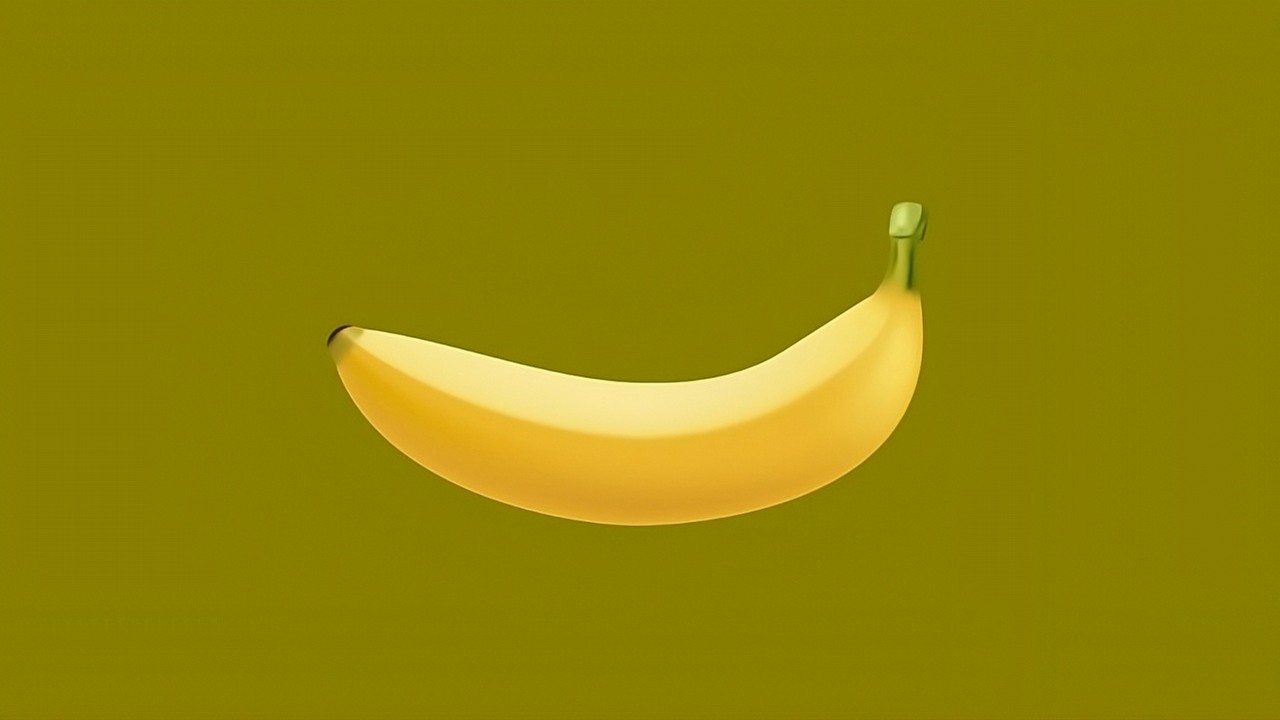300,000 In-Game Players Looking for Virtual Bananas Shows Steam’s Absurdities. People Believe It Will Bring Them Fortune
Banana doesn't impress with its gameplay and (let's call it that) static graphics, but it's still one of the most popular games on Steam.

The gaming market often sees unexpected hits that attract many players out of nowhere. However, the situation of an unassuming free clicker, Banana, is unique, as it has been played by over 300,000 Steam users at the same time. Thanks to this, the title is currently the fourth most popular game on Steam, and at its peak it was third in the ranking.
Oh, Banana!
The game by Robert "aaladin66" Partyson actually comes as an unironic parody of a clicker, as pointed out by a youtuber, The Spiffing Brit. After starting the game, a window with a banana on a yellow background pops up, which we need to click. And that's it.
The dev didn't even attempt to include achievements for every 10, 100, etc. clicks. Actually, there is one achievement for clicking on the banana once. Therefore, it's not an appealing position for those striving to rank high in the Steam account leaderboard with the most achievements, unlike aaladin66's previous game: Lass ich Sliden.
F2P is not enough
Perhaps the initial reason for the popularity of this title is that it is available for free, excluding the store with optional banana patterns (yes, the title includes microtransactions). However, the free-to-play model itself doesn't explain why such a minimalist game remains in the top five Steam titles, ahead of such free hits as Apex Legends or Naraka: Bladepoint, not to mention games like War Thunder or Team Fortress 2.
Market of absurdity
A clue to the sources of Banana's success is the fact that the game card highlights items to buy. However, when we check any of them, it turns out that items from Banana can be sold on the Community Market for a higher amount.
Rare drops and speculations
Importantly, you don't have to buy these items at all. Banana has a system of dropping "items" that can be obtained for active play. Most of them are essentially worthless, but they reveal interesting statistics: the most commonly dropped loot is available on Steam in more than 2 million copies. No purchase offers were found.
However, on the other side, we have items that occur much less frequently. The chance of getting a diamond banana is one in a million. Users are willing to pay almost $200 for the most expensive "skins."
It's worth emphasizing that the sale price was increasing over time. The same item was initially distributed for about $20 and only over time its "value" skyrocketed. In this case, the simplicity of the gameplay is actually a benefit, as the game doesn't demand much attention from the user and doesn't utilize system resources. You just need to click once every 18 hours to get a rare item (and it doesn't even require you to keep the game running constantly).
To make it more fun: I deliberately don't use the word "skins," because currently you can't use these "skins" in the game. The creator supposedly plans to add that option soon, but for now those bananas are entirely useless in the context of "gameplay."
In short, the entire appeal of Banana is a speculative market where players hope to make an easy profit by purchasing items with the hope of selling them for a higher price. Basically, the entire concept was built on a similar idea to NFT tokens, but with the addition of the "rarity" aspect known from collectible card games.
Bananas without mining
So the question arises, what does the dev get out of this? Apart from the income generated from selling items (as developers and Steam receive a share of the money from each transaction), Partyson was accused by internet users of using the game for cryptocurrency mining, a claim which he promptly refuted (via Steam). Indeed, there is no evidence of virtual mining in the background of the game, even though it has been 3 weeks since the premiere.
Disregarding the allegations concerning the dev's beliefs (the German removed his recent pseudonyms on Steam, which - without delving into specifics - were somewhat controversial), internet users also observed that Partyson concealed his gear on Steam, despite it being publicly accessible before. So it's hard to say how many absurd purchase or sale offers originate from the developer.
Of course, as is often the case online, not all internet users participate in serious discussions. Some players are more focused on memes, such as ideas for sequels involving a cucumber, or different musings about bananas. Not necessarily virtual.
- Everything announced during today's Day of the Devs presentation. Over 20 indie games you need to see
- “The first thing I really need to do is refocus on my family,” says Edmund McMillen, creator of The Binding of Isaac, while discussing his new game and sharing advice for indie devs
- Six great game announcements from the Game Awards that you may have missed
0

Author: Jacob Blazewicz
Graduated with a master's degree in Polish Studies from the University of Warsaw with a thesis dedicated to this very subject. Started his adventure with gamepressure.com in 2015, writing in the Newsroom and later also in the film and technology sections (also contributed to the Encyclopedia). Interested in video games (and not only video games) for years. He began with platform games and, to this day, remains a big fan of them (including Metroidvania). Also shows interest in card games (including paper), fighting games, soulslikes, and basically everything about games as such. Marvels at pixelated characters from games dating back to the time of the Game Boy (if not older).
Latest News
- End of remote work and 60 hours a week. Demo of Naughty Dog's new game was born amid a crunch atmosphere
- She's the new Lara Croft, but she still lives in fear. Trauma after Perfect Dark changed the actress' approach to the industry
- „A lot has become lost in translation.” Swen Vincke suggests that the scandal surrounding Divinity is a big misunderstanding
- Stuck in development limbo for years, ARK 2 is now planned for 2028
- Few people know about it, but it's an RPG mixing Dark Souls and NieR that has received excellent reviews on Steam, and its first DLC will be released soon

